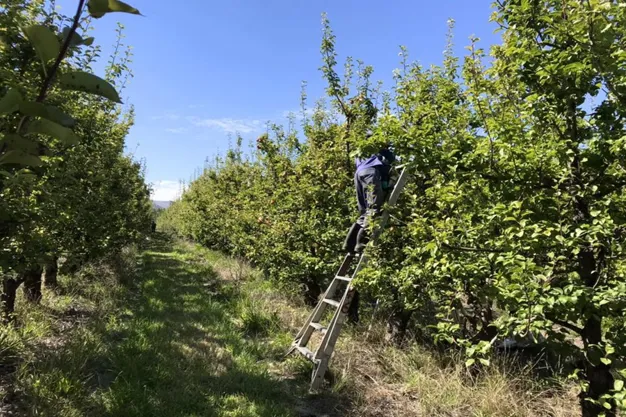South African agriculture was among the pioneers in adopting EurepGAP (forerunner to GlobalG.A.P) certification in 2003, along with Spain and Italy, as befits the export-oriented industry. Lemons, oranges, soft citrus, pears and apples are today the top five South African products certified by this standard while over 5,600 producers are certified appliers of good agricultural practices in all sectors (including now, a world first, abalone farming).
"South Africa has been a success story for years now," Ignacio Antequera (right), lead sales and stakeholder engagement at FoodPLUS GmbH (legal owner of the Global G.A.P standard) told the attendees of the South African stop on the Global G.A.P world tour: "We are a tool for you to create the trust necessary along the supply chain."
Besides South African producers, buyers and representatives of various certification bodies gathered in Paarl for the two-day event, there was strong presentation from the Namibian Agronomic Board.
Antequera adds that SPRING, which certifies the smart use of water, has experienced large uptake with over 500 South African producers obtaining the standard over the past two years, while Chain of Custody certifications almost doubled over the past twelve months.
Harmonisation of standards – especially when trading with over a hundred different destinations as South Africa does – is crucial, while keeping differences in production in mind through customization.
"Our solutions have contributed to reducing the multiplicity of certifications in different ways: the involvement of key parties in the development of standards, by consensus between suppliers and buyers. By their participation we gain their acceptance of the solutions. We increase the efficiency because the demands of consumers are increased into existing structures."
The Global Food Safety Initiative (GFSI) recognises these tools which helps in reducing duplications, while local well-established standards are benchmarked and seen as equivalents in order to avoid duplication.
"No agricultural practices without respect for employees at farm level"
"We are aware that environmental sustainability is a journey, it cannot be changed from today to tomorrow. It is a continuous improvement process," he asks, noting that there are high expectations of producers in this regard.
"There are no agricultural practices without respect for and care of the employees at farm level. Our standards have also included workers' welfare requirements. For twenty years we created the additional standard GRASP that goes beyond what the IFA [Integrated Farm Assurance] standard covers, including freedom of association, minimum wages and so forth."

Supply chains are getting longer, increasing the demands for transparency both from buyers and consumers, necessitating constant refinements to the standards - for which the inputs from local producers are fundamental and the local industry is implored to make their opinions and needs known to the national technical working committee of GlobalG.A.P.
He acknowledges that the changes can be challenging for users. "There is a need to understand what is expected which we facilitate through capacity-building, online and face-to-face training for users and for consultants."
